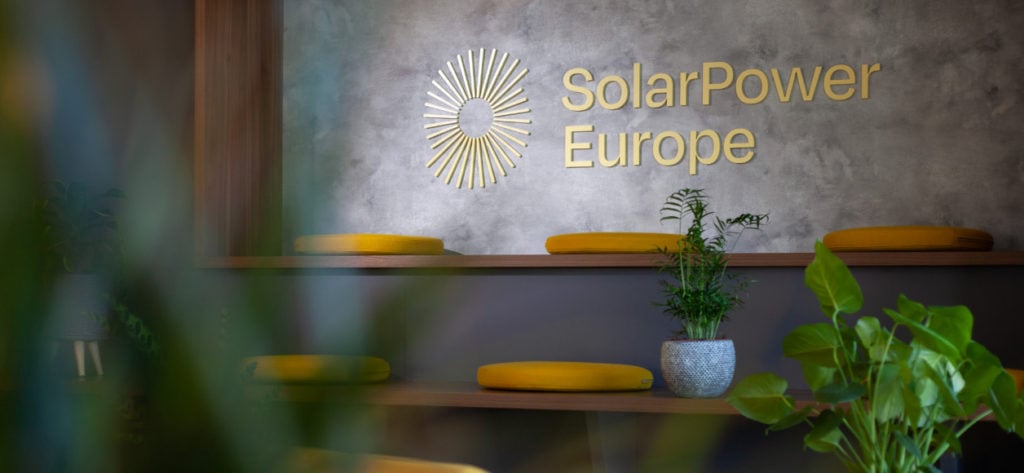
A solar manufacturing facility that the US government said was sourcing polysilicon from the Xinjiang region of China reportedly ceased production in 2018, according to an investigation by Europe’s Solar Stewardship Initiative (SSI).
Donghai JA Solar, a subsidiary of major Chinese manufacturer JA Solar, was added to the US government’s Uyghur Forced Labor Prevention Act (UFLPA) entity list earlier this month on the grounds that the US Department of Homeland Security (DHS) had “reasonable cause to believe” the company “sources polysilicon from the Xinjiang Uyghur Autonomous Region (XUAR).”
Try Premium for just $1
- Full premium access for the first month at only $1
- Converts to an annual rate after 30 days unless cancelled
- Cancel anytime during the trial period
Premium Benefits
- Expert industry analysis and interviews
- Digital access to PV Tech Power journal
- Exclusive event discounts
Or get the full Premium subscription right away
Or continue reading this article for free
Following the DHS’s statement, the SSI suspended JA Solar’s membership of its organisation and launched its own investigation. However, the SSI has now reinstated JA Solar’s membership “with immediate effect” after finding that the “only production site owned by the Donghai JA Solar Technology Co. Ltd … ceased production in 2018.”
The XUAR has been associated with alleged forced labour enforced by the Chinese state on the Uyghur Muslim population, with particular attention paid to quartz mining, metallurgical silicon and polysilicon production, which forms the start of the solar supply chain.
The SSI said its investigation ran between 16-24 January, during which time it sent a “senior member of the SSI Secretariat with a 20-year track record of international, independent third-party assessments accompanied by a translator” to the Donghai JA Solar facility in question.
It also claims to have reviewed “legal and contractual documentation … including polysilicon supply contracts” and held “consultations with relevant stakeholders” including JA Solar staff, “independent solar supply chain experts” and “other industry and non-industry stakeholders.”
In a statement, the SSI board said: “The SSI Board acknowledges the vital role historical reports have played in raising awareness of supply chain risks and driving improvements in environmental, social, governance (ESG) and traceability performance.
“Today, the solar sector’s rapidly evolving ESG and traceability performance means that governments, institutions, investors and NGOs have to rely on up-to-date data, i.e. no older than 12 months, and recognise companies’ publicly available policy management procedures.”
In a statement seen by PV Tech, Aiqing Yang, executive president of JA Solar said: “The conclusion of SSI’s review reaffirms our dedication to ethical sourcing and regulatory compliance. We will continue to work with industry partners to uphold the highest standards in supply chain traceability and responsible procurement.”
Supply chain transparency
The DHS also added two other solar component manufacturers and two of their subsidiaries to its UFLPA entity list along with JA Solar.
The UFLPA puts the burden of proof on manufacturers to actively prove to US customs that their supply chains are free from potential exposure to forced labour. The US government can ban any product from entering the country which cannot provide this evidence.
The SSI, by contrast, is an industry-led organisation that certifies individual manufacturing sites that companies volunteer for third-party inspection. It has two certifications: the ESG Standard, which covers labour, emissions and other ethical practices; and the Supply Chain Traceability Standard, which aims to track silicon throughout the supply chain.
Membership of the SSI only entails a “commitment” to its principles and is distinct from having manufacturing sites certified. The initiative certified its first two manufacturing sites earlier this month under its ESG Standard, from Trinasolar.
In its statement on reinstating JA Solar’s membership, the SSI said: “Donghai JA Solar Technology Co., Ltd has been adapting its sourcing practices as part of the broader JA Solar group’s commitment towards compliance with the SSI’s traceability and certification requirements. It is also noted that the DHS announcement does not state or imply that the US government has established that the JA Solar group owns or operates any entities or facilities in the XUAR, nor that the company uses any forced labour at any of its sites globally.”
Whether or not JA Solar owns or operates facilities directly in Xinjiang is effectively irrelevant to the UFLPA’s methodology, as it encompasses a company’s inputs and suppliers up the supply chain. The SSI Supply Chain Traceability Standard, published in December, aims to do the same.
Critics of the SSI have said that it lacks the power to enforce meaningful supply traceability, as companies can volunteer for certification and are only assessed at individual manufacturing sites, leaving others unaccounted for.
In a post on LinkedIn, Michael Parr, executive director of the Ultra Low Carbon Solar Alliance, an organisation focused on solar supply chains, said: “The idea that, with a fraction of the resources of the US government, the SSI could determine in that very brief period that JA’s supply chains are not tainted with forced labour strains credulity and does not bolster confidence in the programme.”
In conversation with PV Tech, Alexia Ruvoletto, head of the SSI Secretariat, said the initiative was “strict” and that the involvement of the industry in its processes “makes it more implementable on the ground” and “more effective”.
This article was updated to include comments from JA Solar






